

|
 Round flaky pastry rolled into a circle, well-filled with currants stewed with sugar, butter and sweet spices, formed up into a bag and turned over to make a bun-shape c4ins diameter (very occasionally larger), 1ins thick. Two or three holes or slashes on top, sometimes sprinkled with coarse sugar or glazed. Compare with Chorley Cakes and Banbury Cakes 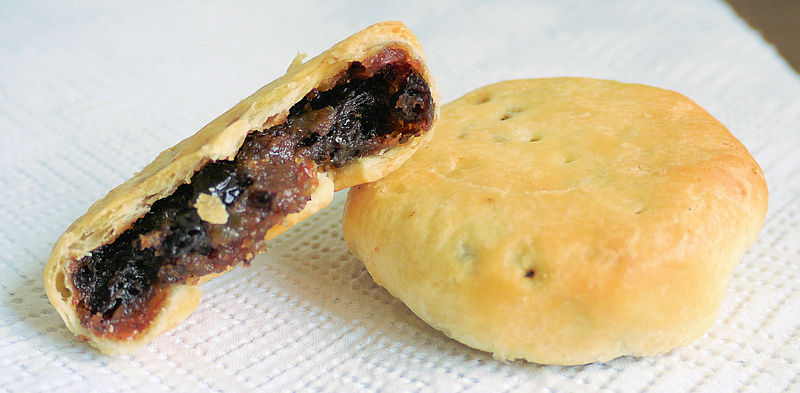 Commercial Eccles Cake Image: Dr Greg The receipt of Soyer 1845 either contains a mistake - confusing the thickness of the finished cake with the thickness of the paste - or Eccles Cakes were formerly rather different.  Original Receipt in 'A Shilling Cookery for The People' by Alexis Soyer (Soyer 1845); Original Receipt in 'A Shilling Cookery for The People' by Alexis Soyer (Soyer 1845);395. Eccles Cake.-To a quarter of a pound of currants half a teaspoonful of grated nutmeg, some lemon-peel chopped fine, one ounce of sugar, roll out about a quarter of a pound of puff paste, roll it round the size of a small plate, and nearly an inch thick, then put a tablespoonful of the mixture over it, roll another piece of paste over it, and bake a nice delicate colour. 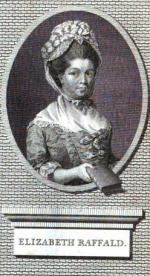 Tradition, and the Eccles local authority, trace Eccles Cakes to Mrs Elizabeth Raffald, (Raffald 1769) a confectioner from nearby Arley Hall whose influential cookery book, 'The Experienced English Housekeeper' of 1786 had a receipt for 'sweet patties'. However, Mrs Raffald's version included boiled calf's foot, apples, oranges, nutmeg, egg yolk, currants and brandy and could be baked or fried. Raffald's receipt looks as if it might have been copied from Sweet Pattees in the Yorkshire-published 'English Housewifry' by Elizabeth Moxon of five years earlier (Moxon 1764)  Original Receipt in 'The Experienced English Housekeeper' by Elizabeth Raffald (Raffald 1769) Original Receipt in 'The Experienced English Housekeeper' by Elizabeth Raffald (Raffald 1769)Sweet Patties. TAKE the meat of a boiled calf's foot, two large apples, and one ounce of candied orange, chop them very small, grate half a nutmeg, mix them with the yolk of an egg, a spoonful of French brandy, and a quarter of a pound of currants clean washed and dried, make a good puff paste, roll it in different shapes as the fried ones, and fill them the fame way; you may either bake or fry them. They are a pretty side dish for supper. 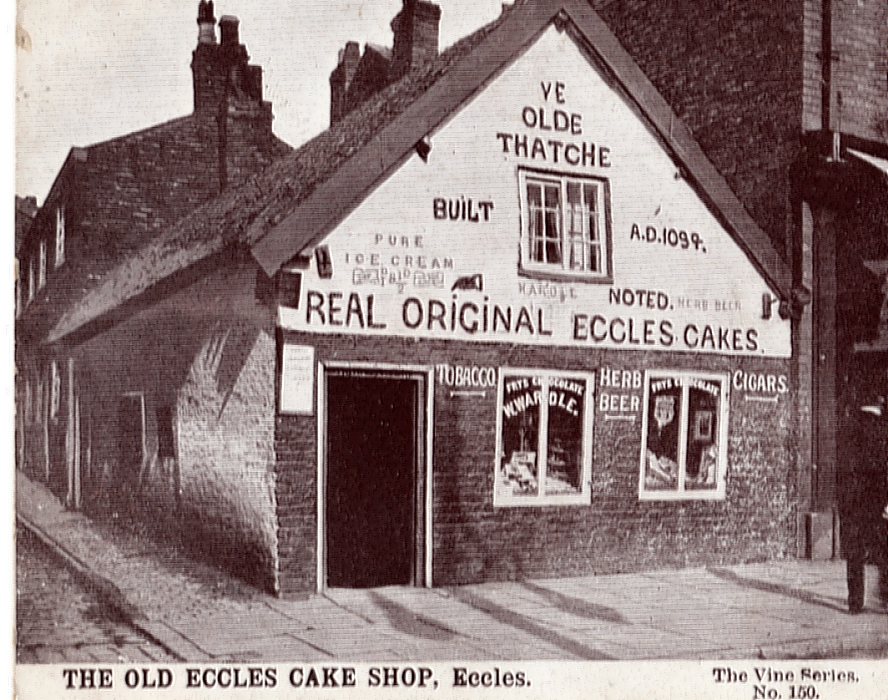 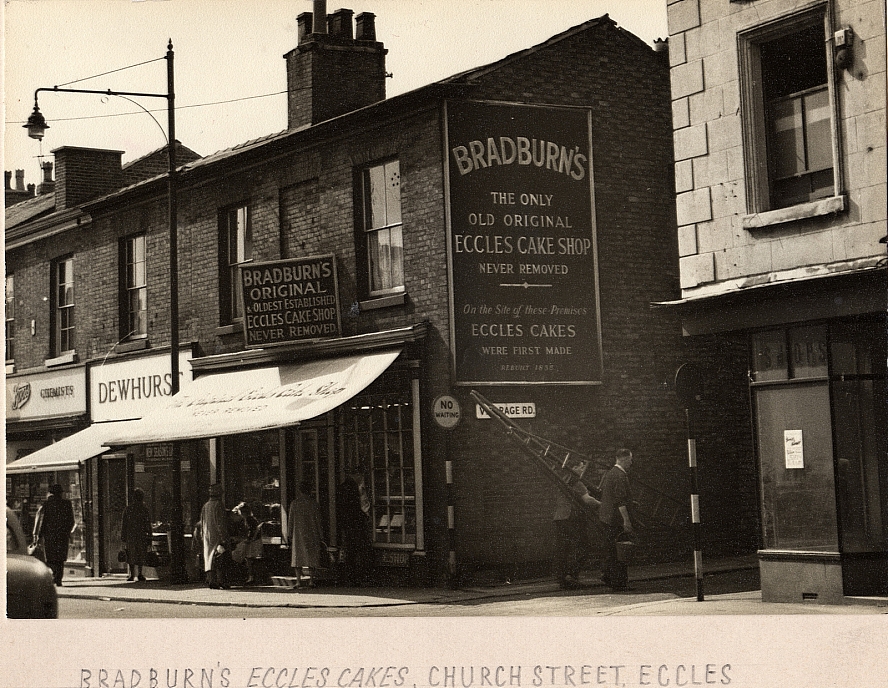 The two 'Original' Eccles Cake Shops Image via: chethamslibrary.blogspot.co.uk Something like modern Eccles cakes were commercialised from around 1793 by James Birch from a shop on the corner of Vicarage Road in Eccles. He later moved across the street to larger, but older, premises, while an ingenious ex-apprentice of his, William Bradburn, took the old shop and advertised it as 'The Only Old Original Eccles Cake Shop - never removed'. Their rivalry may well have been the making of Eccles Cakes, as every visitor to what was then a pleasant village outside Manchester, had to buy one from each to see what the difference was. There are persistent stories, if not evidence, that The Puritans banned the eating of Eccles Cakes at religious festivals when the people of the town danced on the green, and that Eccles-Cake eating thereby became a dangerous underground activity. That may not be true, but it is certainly the case that Eccles-Cake consumption was not without its opponents on moral and religious grounds... 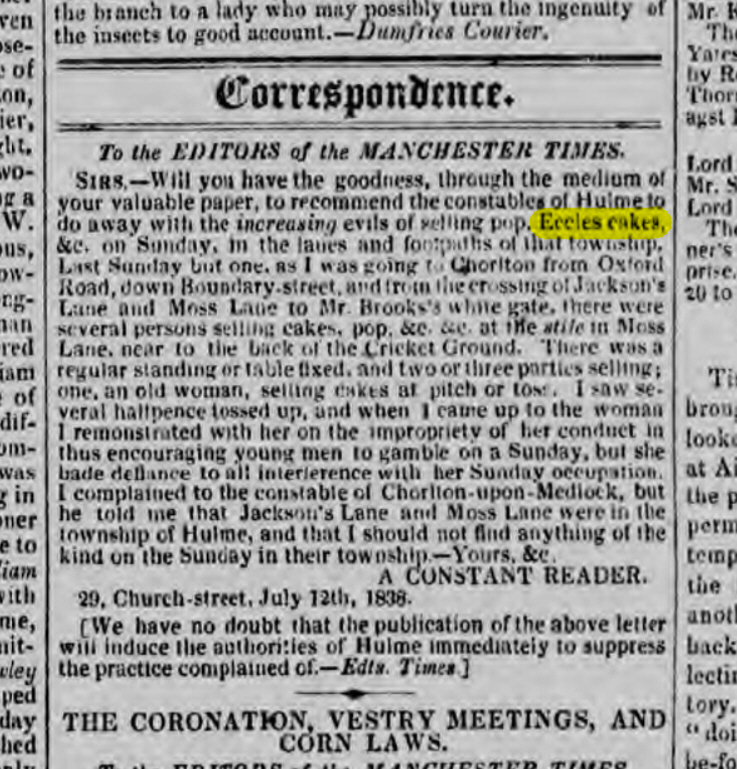 Manchester Times - Saturday 14 July 1838 For a drink to go with the cakes, see: Bragget 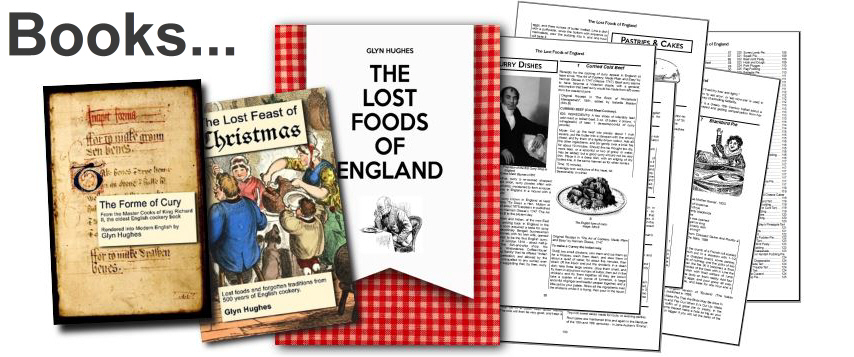 |
|
MORE FROM Foods of England... Cookbooks ● Diary ● Index ● Magic Menu ● Random ● Really English? ● Timeline ● Donate ● English Service ● Food Map of England ● Lost Foods ● Accompaniments ● Biscuits ● Breads ● Cakes and Scones ● Cheeses ● Classic Meals ● Curry Dishes ● Dairy ● Drinks ● Egg Dishes ● Fish ● Fruit ● Fruits & Vegetables ● Game & Offal ● Meat & Meat Dishes ● Pastries and Pies ● Pot Meals ● Poultry ● Preserves & Jams ● Puddings & Sweets ● Sauces and Spicery ● Sausages ● Scones ● Soups ● Sweets and Toffee ● About ... ● Bookshop ● Email: [email protected] COPYRIGHT and ALL RIGHTS RESERVED: © Glyn Hughes 2022 BUILT WITH WHIMBERRY |